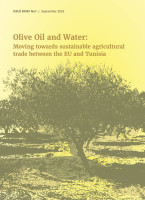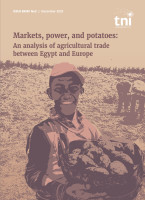MATS Project
Mission
MATS aims to identify key leverage points for changes in agricultural trade policy that foster the positive and reduce the negative impacts of trade on sustainable development and human rights. Particular attention is paid to SDG1 No Poverty, SDG2 Zero Hunger and SDG3 Good Health and Well-being, as well as SDG6 Clean Water, SDG13 Climate Action and SDG15 Life on Land.
Focus is on improving the governance, design and implementation of trade practices, regimes and policies at national, EU, African and global levels. In implementation, MATS develops and pilots new tools for a systemic analysis, and assessment, of the interactions between agricultural trade, investments, sustainability and development.
Ambitions
MATS has the ambition to set a new benchmark in trade policy analysis. It not only conducts orthodox quantitative analysis to identify major trends in international trade relations and their general effects, but also identifies impacts that trade agreements have by co-creating and applying new participatory tools and methods in trade-related analyses.
MATS seeks to transcend beyond previous quantitative, econometric and model-based analyses. Inter-disciplinary in approach, MATS combines analyses from agricultural economics, sustainable development research, and trade and market modelling with research on institutional, regulatory and legal frame-works to broaden and deepen earlier analyses and make policy recommendations. The project partners aim to inform relevant debates and policy developments based on this diverse portfolio of perspectives.
MATS wants to contribute to the development of a fair-trade system that supports local development and promote labour and human rights on a global level. International and national food security regulations are considered to study the relationship between possible conflicts amongst diverging policy objectives, measures and subsidies, and their respective impact on climate mitigation efforts and the economic development of poor countries.
You can find more details about the MATS project here.

